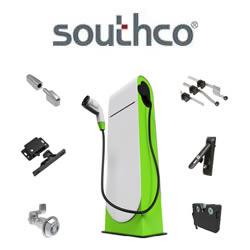Department for Transport Appoints Cenex to Major New Role
Cenex, the UK's Centre of Excellence for Low Carbon and Fuel Cell Technologies, has been appointed as the Department for Transport's delivery partner to develop the new Low Carbon Vehicle Procurement Programme (LCVPP).
Cenex, the UK's Centre of Excellence for Low Carbon and Fuel Cell Technologies, has been appointed as the Department for Transport's delivery partner to develop the new Low Carbon Vehicle Procurement Programme (LCVPP).
The aim of the programme, announced in the May 2007 Energy White Paper, is to accelerate the introduction of lower carbon technologies onto the UK vehicle market, with the ultimate objective of reducing overall carbon emissions from the vehicle fleet.
CEO of Cenex, Robert Evans said:
"I am delighted that the DfT has appointed Cenex as delivery partner for this exciting new programme. We have studied the concepts involved closely, and believe that the programme will enable demonstration of innovative, lower-carbon vehicles in significant numbers."
Adrian Vinsome, Cenex's Programme Manager for the Low Carbon Vehicle Procurement Programme, added:
"By providing suppliers with the opportunity to demonstrate the real-world performance of their low carbon technologies in high profile public sector fleets, and providing definite evidence of public sector demand, the programme should promote the introduction of new technology at a small-fleet level. Making the transition from single vehicle demonstrators to volume introduction is a well-recognised problem for the industry, particularly for smaller manufacturers, and the programme will help to overcome this barrier. A further consequence of this reduced risk for the manufacturers is that it should also stimulate further innovation, leading to more efficient, lower carbon vehicles for everyone in longer term."
Initial funding of £20million is available to help meet the additional costs for public sector organisations of procuring innovative, lower carbon vehicles, with the potential of a further £30million if early results are successful. The programme will focus on the development of lower-carbon vans in the first phase, with smaller scale procurements of lower-carbon minibuses, all-electric vans, and plug-in hybrid passenger cars.
Transport minister Jim Fitzpatrick MP said:
"Encouraging the development of lower-carbon vehicle technologies is a key part of our strategy for reducing emissions from road transport. The size of the public sector fleet means that public sector demand for lower-carbon vehicles has the potential to have a real impact on the vehicle market. As delivery partner Cenex will seek to leverage this demand to introduce new, lower-carbon vehicles, including a lower-carbon van, onto the UK market, which could bring down the costs of reducing carbon for everyone."
Cenex will play a key role in establishing public sector demand for lower-carbon vehicles and in developing tenders for vehicle manufacturers to supply them. The programme provides an opportunity for vehicle manufacturers and suppliers to demonstrate products in high-profile public sector fleets, while allowing public sector organisations to trial low-carbon vehicles in real-world conditions and reduce their carbon footprint without incurring a cost penalty. Initial public sector partners identified include the Environment Agency, HM Revenue & Customs, the Metropolitan Police, the Royal Mail, Transport for London and the Government Car & Despatch Agency.
The programme represents an innovative type of policy intervention and stands to achieve key strategic benefits, including driving down costs for the technologies through economies of scale.
Featured Product

Southco Inc. - POWER UP YOUR CHARGING DESIGN
With engineered access solutions for electric vehicle charging equipment. Southco's engineered access hardware, including locks, latches and hinges can help Electric Vehicle (EV) charging manufactures to achieve high standards of equipment performance, usability and security, providing a seamless charging experience for drivers.
